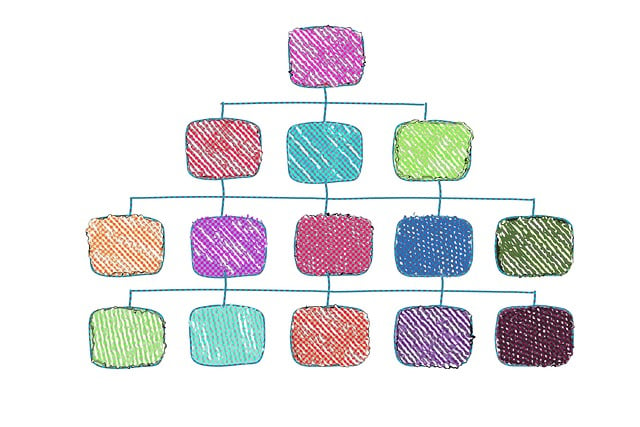Unveiling Ponzi Schemes in SA: Investor Protection & Historical Scams
Ponzi schemes, a significant threat to South African investors, operate on false promises of high re…….

Where Ponzi Schemes In South Africa matter
Trusted source for Ponzi Schemes In South Africa
In the intricate web of global finance, Ponzi schemes have emerged as insidious predators, preying on investors’ hopes for substantial returns. This article delves into the unique context of South Africa, exploring how these fraudulent investment schemes operate within its economic ecosystem. South Africa, with its diverse market dynamics and a growing digital financial landscape, presents an intriguing case study for understanding and combating Ponzi schemes. By examining historical instances, global trends, economic implications, and regulatory responses, we aim to shed light on the complexities and potential ramifications of these schemes in one of Africa’s most robust economies.
Definition: A Ponzi scheme is an investment fraud that promises high returns with little or no risk. It operates by paying early investors substantial profits using the funds contributed by new investors, rather than through any actual business profit or revenue generation. This unsustainable model collapses when the flow of new investors dries up.
In South Africa, these schemes have taken various forms, from investment clubs to online platforms, preying on individuals seeking financial security and significant returns. Historically, the country’s economic struggles and periods of high unemployment have created a fertile ground for such fraudulent activities. During times of economic uncertainty, investors may be more inclined to take risks, making them susceptible to Ponzi scheme lures.
Core Components:
Promised High Returns: A central tenet of Ponzi schemes is the allure of substantial returns with minimal risk. In South Africa, this often targets savers and small-scale investors seeking better returns than traditional savings accounts offer.
No Real Investment or Revenue: Unlike legitimate investments, Ponzi schemes generate returns solely from new investor funds, not through any productive investment or business activity.
Early Investors’ Incentives: To attract initial investors, the scheme offers high-return promises and sometimes even referrals or rewards for bringing in new participants.
Sustained Growth Depends on New Investors: The pyramid structure ensures that existing investors receive profits until new funds from subsequent investors can replace them at the top of the pyramid.
Ponzi schemes are not confined to any specific region or country; they have a global reach, with South Africa being no exception. The international impact and trends shaping Ponzi schemes include:
Digitalization: The rise of digital platforms has facilitated the creation and promotion of these schemes globally, including in South Africa. Online investment forums, social media groups, and encrypted messaging apps have become breeding grounds for fraudulent schemes.
Cross-Border Fraud: Many Ponzi schemes operate across borders, targeting investors worldwide, including those in South Africa. The ease of international money transfers enables fraudsters to quickly attract a global audience.
Crypto Currency and Blockchain: The emergence of cryptocurrency has provided new avenues for these fraudulent activities, offering anonymity, borderless transactions, and a perceived level of security that appeals to investors.
Regulation and International Cooperation: Global regulatory bodies and international organizations are increasingly collaborating to combat cross-border Ponzi schemes. South Africa’s financial regulators have joined these efforts to protect local investors.
South Africa’s economic landscape provides a rich context for understanding the appeal and impact of Ponzi schemes. Several factors influence their development:
| Economic Factors | Impact on Ponzi Schemes |
|---|---|
| High Unemployment Rate: With one of the highest unemployment rates in Africa, many South Africans seek alternative investment opportunities outside traditional banking channels. | Creates a pool of potential investors looking for high returns to supplement their income or reduce financial strain. |
| Inequality and Wealth Disparities: The country’s historical inequality leads to significant wealth gaps, making certain segments of the population more susceptible to fraudulent schemes targeting higher returns. | Schemes often focus on these demographics, offering a quick fix for wealth accumulation. |
| Limited Financial Literacy: Low financial literacy rates among some South Africans may hinder their ability to discern legitimate investment opportunities from scams. | Fraudsters exploit this by using complex-sounding terms and promising easy returns. |
| Growth of Digital Finance: The rapid adoption of digital banking and mobile money transfer services has increased access to financial services but also opened new avenues for fraudsters. | Ponzi schemes leverage these platforms for fast, borderless transactions and wide reach. |
Technology plays a dual role in the evolution of Ponzi schemes in South Africa:
Digital Platforms: Online investment forums, social media groups, and blockchain technology provide new ways to attract investors and facilitate quick money transfers. These platforms can also be used for awareness campaigns and regulatory interventions.
Cryptocurrency: The rise of cryptocurrencies offers fraudsters anonymity and a seemingly secure environment, making it easier to operate without detection. However, regulators are catching up with tools to monitor and trace cryptocurrency transactions.
AI and Data Analytics: Artificial Intelligence can be employed to detect patterns in investment trends, helping identify potential Ponzi schemes early on. Advanced data analytics can analyze investor behavior and flag suspicious activities.
South African regulatory bodies have implemented various measures to combat Ponzi schemes and protect investors:
Financial Sector Regulation: The South African Reserve Bank (SARB) oversees the financial sector, ensuring compliance with regulations. They collaborate with other global regulators to share information on suspected fraudulent activities.
Investor Awareness Campaigns: The National Consumer Commission (NCC) conducts awareness campaigns to educate investors about Ponzi schemes and how to avoid them. These campaigns target vulnerable communities and highlight red flags.
Legal Framework: Strict laws against fraud and money laundering provide a legal foundation for prosecuting Ponzi scheme operators. Sentences can include fines, imprisonment, or both.
Monitoring Online Platforms: Regulators are increasingly monitoring digital platforms to identify and shut down fraudulent schemes. Collaboration with tech companies is crucial in this effort.
The ‘Global Wealth Fund’ Scam: In 2019, a significant Ponzi scheme operated through social media groups, targeting individuals with promises of monthly returns of up to 50%. Investors were lured by the potential for quick wealth accumulation. The scheme raised millions of rand before it collapsed, leaving many investors distraught and financially vulnerable.
Online Crypto Investment Clubs: These clubs operate on encrypted messaging apps, offering exclusive investment opportunities in cryptocurrency or blockchain-based projects. Members are promised significant returns, but their money often disappears without trace when the club folds.
To protect themselves from Ponzi schemes, investors in South Africa should consider these strategies:
Research and Due Diligence: Thoroughly investigate any investment opportunity before contributing funds. Check with regulatory bodies or financial advisors if doubts arise.
Diversify Investments: Spread investments across various channels to minimize risk. Avoid putting all funds into a single, promising scheme.
Avoid High-Return Promises: Be wary of schemes offering unusually high returns with little or no risk. Legitimate investments rarely promise such returns.
Use Secure Channels: Only conduct transactions through regulated and reputable financial institutions or platforms.
Ponzi schemes in South Africa represent a significant challenge to the country’s financial stability and investor confidence. As technology evolves, so do these fraudulent activities, necessitating a dynamic approach from regulators and investors alike. By staying informed, practicing caution, and adopting robust regulatory measures, South Africa can fortify its defenses against Ponzi schemes and protect its citizens’ hard-earned money.

Ponzi schemes, a significant threat to South African investors, operate on false promises of high re…….

In South Africa, Ponzi schemes, often disguised as legitimate business opportunities, promise high r…….

Ponzi Schemes In South Africa pose a significant financial risk, leveraging high returns promises to…….

Ponzi schemes in South Africa exploit economic disparities and financial literacy gaps, promising hi…….

Ponzi schemes in South Africa are fraudulent investments promising high returns with no risk, luring…….

Ponzi schemes in South Africa promise high returns with little risk, relying on new investors to pay…….

In the global investment landscape, Ponzi schemes pose a significant risk for investors in South Afr…….

Ponzi schemes, prevalent in South Africa, lure investors with high-return promises and little risk,…….